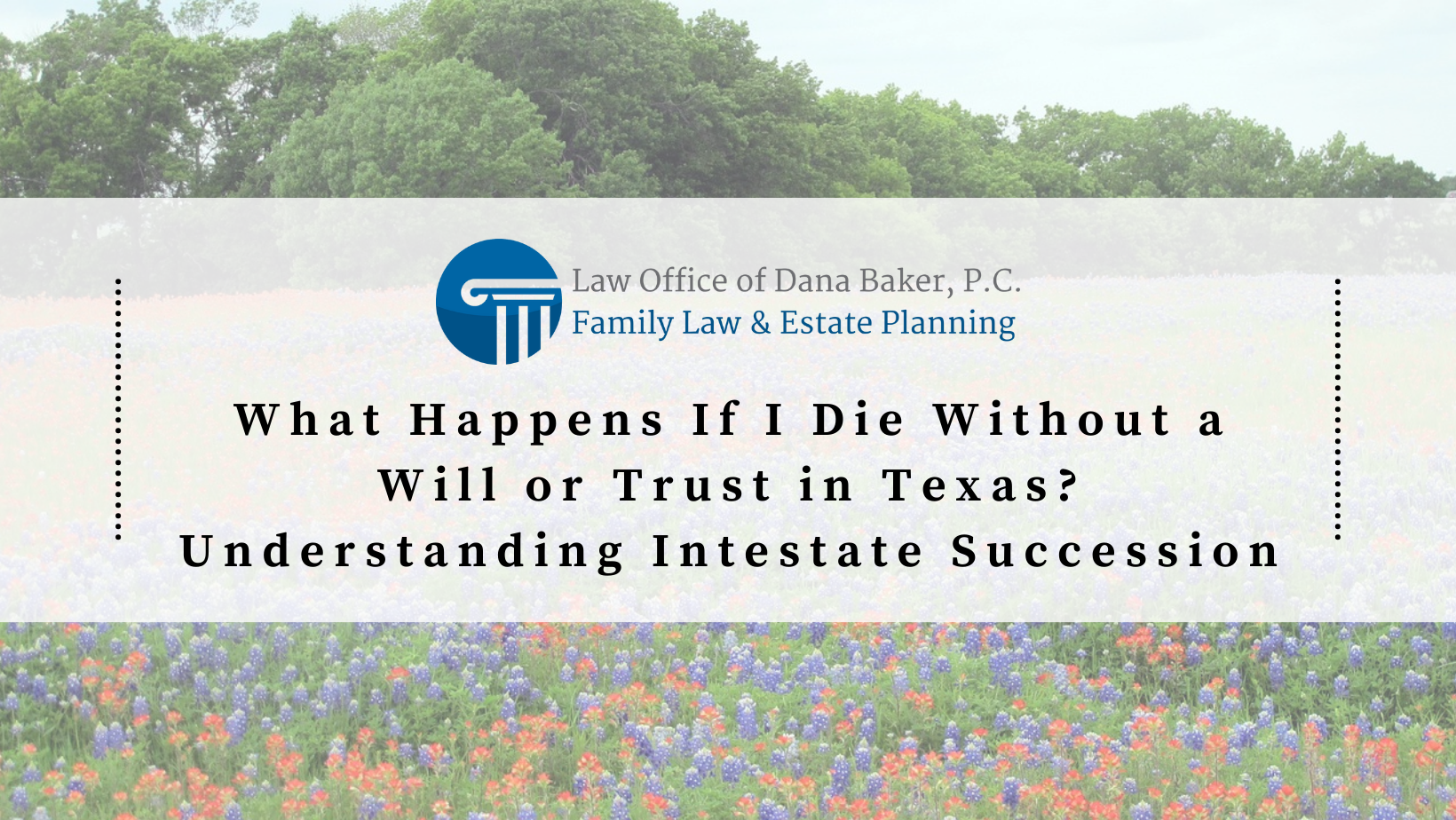Schedule Your Free 15-Minute Phone Consultation
(979) 865-0000

The thought of passing away without leaving behind specific instructions for our belongings can be a daunting one. For Texans, understanding the laws surrounding intestate succession, or the process that dictates how assets are distributed if one dies without a valid will or trust, is essential. Here’s what happens under Texas law.
The Basics of Intestate Succession in Texas
If you pass away without a will or trust in Texas, you are considered to have died “intestate.” As a result, Texas state laws will determine how your property is distributed, regardless of your personal wishes or the needs of your loved ones.
How Property is Distributed
Homestead Property
In Texas, the homestead property holds a unique place. If you are survived by a spouse, they have the right to use the homestead for the rest of their life, even if you have children from a previous relationship. After your spouse’s death, the property will then pass to your descendants.
Final Thoughts
While Texas has detailed laws to address the distribution of assets for those who die intestate, the results may not align with what you envision for your loved ones. The best way to ensure that your property and assets are distributed according to your wishes is to consult with an estate planning attorney and create a comprehensive will or trust.
Remember, estate planning isn’t just about the distribution of assets; it’s about peace of mind for you and protection for your loved ones. Don’t leave these critical decisions up to the state—take control of your legacy today.